

When I was a teenager in the 1950s, gasoline was cheap but cash was hard to come by. It was common practice to carry a siphon hose in one’s car because friends would frequently run out of gas. With a hose you could get just enough gas from a friend’s car to reach a gas station without having to get a can and make two trips. The hose was also useful for getting gas from the parents’ vehicles.
A siphoning hose uses atmospheric pressure and gravity to cause fluid to flow, once started, without further efforts. When adequate pressure is reached, the flow continues unabated as long as there is a sufficient source of liquid. This makes a great analogy for our economy because the notion of using an economic stimulus works exactly like the siphon hose. Get it going with sufficient force, and it will continue on its own as long as there is a demand.

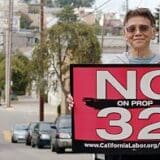
Hello, I’m Helen Gan, a member of IBEW Local 1245.
I want to persuade you to vote NO on Proposition 32. Prop 32 is a measure that will prohibit unions from contributing to political campaigns. It is part of an attempt, going on all across the country, for businesses to roll back the benefits unionization has given to workers.
I am 76 years old, and have worked for 57 years, 52 of them at PG&E. I am part of the generation who, because of the union, was able to live a good life, buy a house, travel, and have a secure old age.
I’m afraid most people have little knowledge of history, and short memories, not knowing how unions lobbied long and hard for us to get the benefits we have today.
In 1912, my mother was seven years old when she went to work in a cannery,
» Read more about: Why I'm Speaking Out Against Proposition 32 »
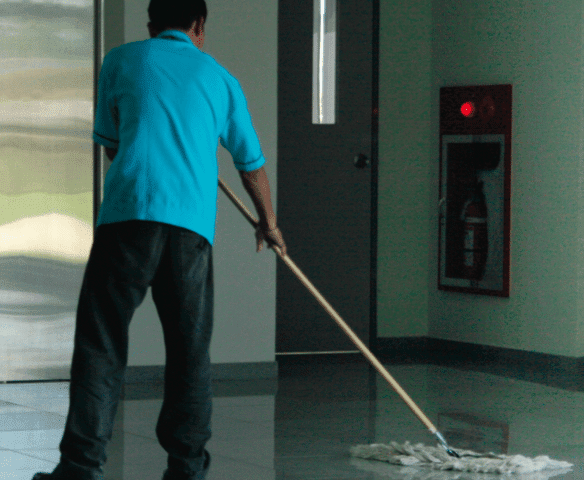
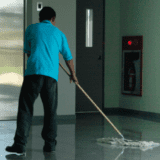
The nature of employment is changing. Employees are increasingly seen as liabilities rather than assets, and so workers are kept at arm’s length from the companies they ultimately serve. Middle-class long-term jobs are shifting to precarious, low-wage work. These contingent relationships include temporary and subcontracted workers, whose ranks have been growing over the past two decades.
In California, almost one-quarter of a million people worked in the temporary help services industry in 2010; another 37,000 people worked for employee leasing firms totaling 282,000 workers in these two industries. This accounted for approximately 2.0 percent of all non-farm employment in California in 2010, approximately the same ratio as for the U.S. as whole. Employment services workers span a wide range of occupations, from professional white collar occupations like nursing, accounting, and computer programming, to blue collar work in transportation and material moving, housekeeping and landscaping,
» Read more about: Report: Temporary Employees, Permanent Poverty »


According to the National Oceanic and Atmospheric Administration, 2012 has been the hottest year on record — ever. Millions of Americans suffered through the sweltering heat this summer, many in triple-digit temperatures in the Northeast and Southwest, and in California’s Central Valley.
California farm workers are literally dying from the heat. And their deaths are entirely preventable. Four hundred thousand California farm workers toil in extreme heat, producing 90 percent of the labor for the multi-billion-dollar agriculture industry that helps feed the nation our tomatoes, strawberries, grapes, lettuce and much more. They often lack water and access to shade throughout the long day in the fields.
Since 2005, at least 16 farm workers have died due to heat illness.
In 2008, for example, there was Maria Isabel Jimenez, a 17-year-old girl who was pruning a vineyard for Merced Farm Labor, near Stockton.
» Read more about: Fields of Fire: Bill Provides Water, Shade to Farm Workers »
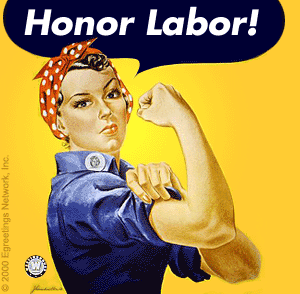
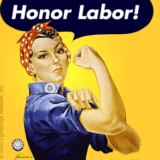
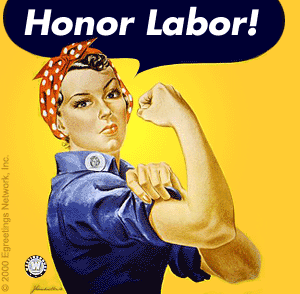 When I started Unionosity, my goal was to provoke discussion about important workplace and economic issues. Work is such a significant part of our lives – many of us spend the majority of our waking hours at it. Yet we don’t talk enough about what it means and how we can do it better — specifically, what can be accomplished if we work together.
When I started Unionosity, my goal was to provoke discussion about important workplace and economic issues. Work is such a significant part of our lives – many of us spend the majority of our waking hours at it. Yet we don’t talk enough about what it means and how we can do it better — specifically, what can be accomplished if we work together.
Unfortunately, the “working together” part can sometimes go awry before it has the chance to begin. I’ve learned to be mindful of some of the predicaments that the working poor have long lived with. One of these I learned the hard way during an affordable housing campaign I took part in nearly 20 years ago in South Central Los Angeles. The program we were organizing around — ironically, a Jack Kemp HUD program — would transfer ownership of publicly subsidized housing to tenant groups made up of Section 8 voucher recipients,
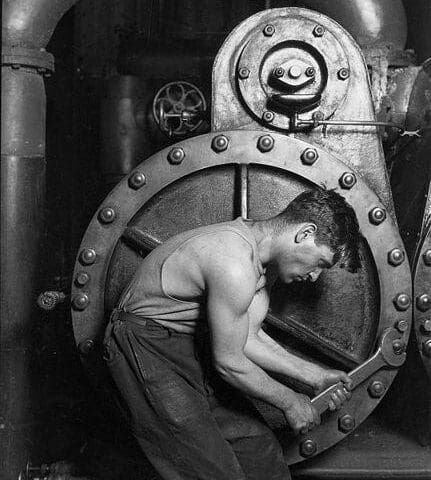
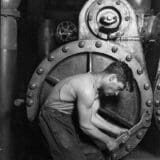
(As we begin Labor Day, 2012, organized labor in America is enduring a Valley Forge period with few signs of improvement on the horizon. Lest we forget, though, why Americans enjoy the employment perks they do – including this very holiday – we repost Stephen D. Foster Jr.’s inventory, via Addicting Info, of reasons to be grateful to unions, and why their existence is essential to our democracy.)
Labor unions are responsible for the many benefits of our jobs that we enjoy today. Even if you only work part time in the worst job possible, you still enjoy at least some of the fruits that labor has fought for. Here are 20 of them.
1. Minimum Wage: Without federally mandated minimum wage, we’d still be working for pennies.
2. Child Labor Laws: Without these laws, children would be hired as cheap labor.
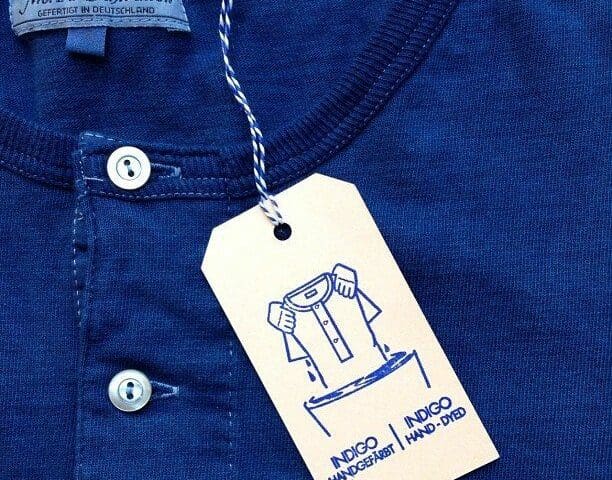

 I recently came across a men’s clothing store in Brentwood, a tony neighborhood of Los Angeles, with the provocative name Unionmade. I walked in and meandered around the shop, looking at the pricy shirts, pants, sweaters, jackets, shoes, and other articles of clothing. After examining the apparel, I couldn’t find any items with a union label. What gives?
I recently came across a men’s clothing store in Brentwood, a tony neighborhood of Los Angeles, with the provocative name Unionmade. I walked in and meandered around the shop, looking at the pricy shirts, pants, sweaters, jackets, shoes, and other articles of clothing. After examining the apparel, I couldn’t find any items with a union label. What gives?
I called Todd Barket, the store’s founder, to find out.
The 40-year old Barket told me that he’s spent his entire career in the men’s clothing business. After dropping out of Cal Arts, he went to work for Banana Republic, followed by 12 years at The Gap in merchandising, styling, advertising, and marketing, and then two years as Old Navy’s creative director for marketing and advertising. After he was laid off in June 2009, Barket began making plans to open his own retail clothing store, and by that December he’d realized his dream.


In a week dominated by the Republican National Convention, most silly quotes were related to the presidential campaign. Indeed, this entire page could have consisted of Clint Eastwood’s bizarre one-man sketch at the convention. (Best headline belonged to Wonkette: Fox News Suddenly Loves Hollywood Elitists After Clint Eastwood Yelled at a Chair.) Still, there was a bit of silliness for everyone.


Local government issues may not appear to be on the Presidential ballot this November. But the national elections, for President and Congress, will affect our local governments and our daily lives for years afterward.
Like all governments, local administrations are funded by tax revenues. A small number of municipalities and counties across the U.S. have their own income taxes, usually under one percent, but sometimes higher. Every county in Indiana, Kentucky and Maryland, 560 cities and villages in Ohio, and big cities like Philadelphia, Baltimore, New York, Birmingham, and St. Louis receive funds from local income taxes. Most municipal and county governments, however, rely on property and sales taxes.
But a sizable chunk of local government spending comes from federal and state tax revenues that are then given to local governments as grants. Decisions about the federal budget thus have a major direct impact on our home towns.
» Read more about: Budget Cuts: How Slashing Nationally Hurts Locally »
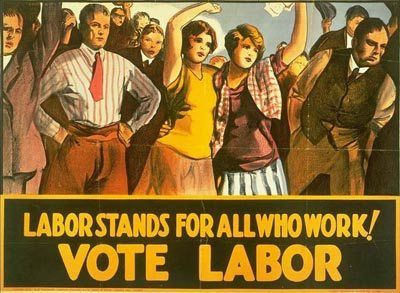
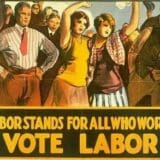
Like any holiday, Labor Day comes with some inevitable scenarios. Number One is that most Americans will take a well-deserved day off, courtesy of the efforts of the labor movement. Next, many of us will barbecue on grills that were paid for by middle class jobs that only exist because of the success of that movement.
But this holiday comes with another inevitability: The Sunday morning newspaper or Web stories proclaiming that people don’t want to join unions anymore. However, despite what the editorial writers and columnists say, the real reason people don’t join unions is that U.S. labor laws are so weak that they are nearly worthless – and the right to join a union is a joke.
When I went to work for my first employer after high school I was part of an organizing drive and a strong majority of the workers – 43 out of 62 – signed cards asking for a union to represent us.